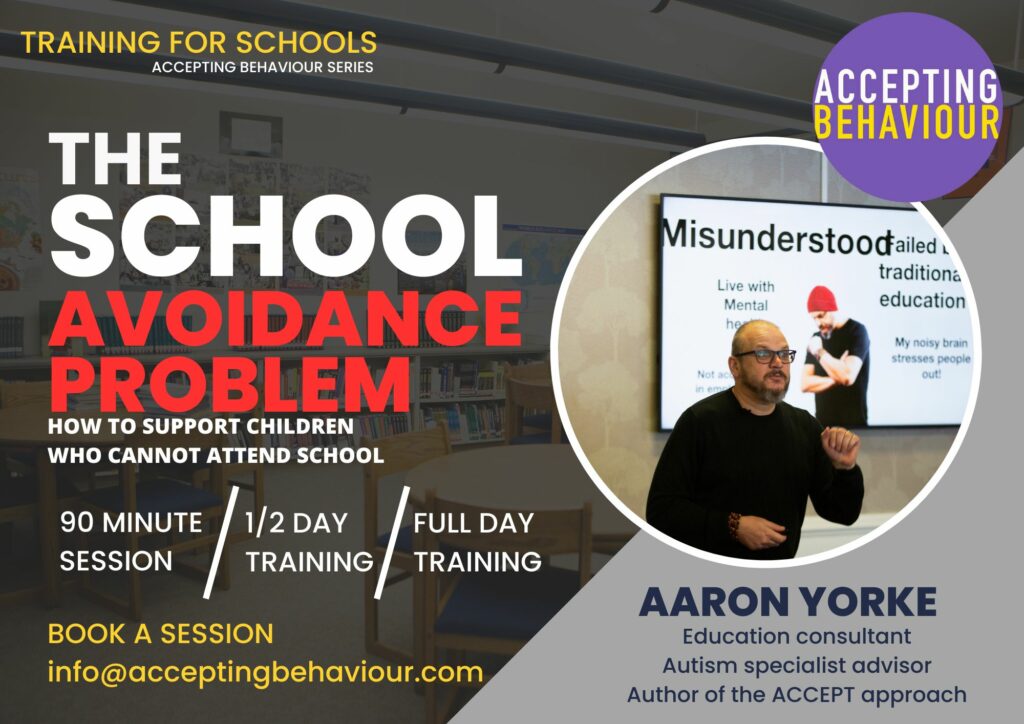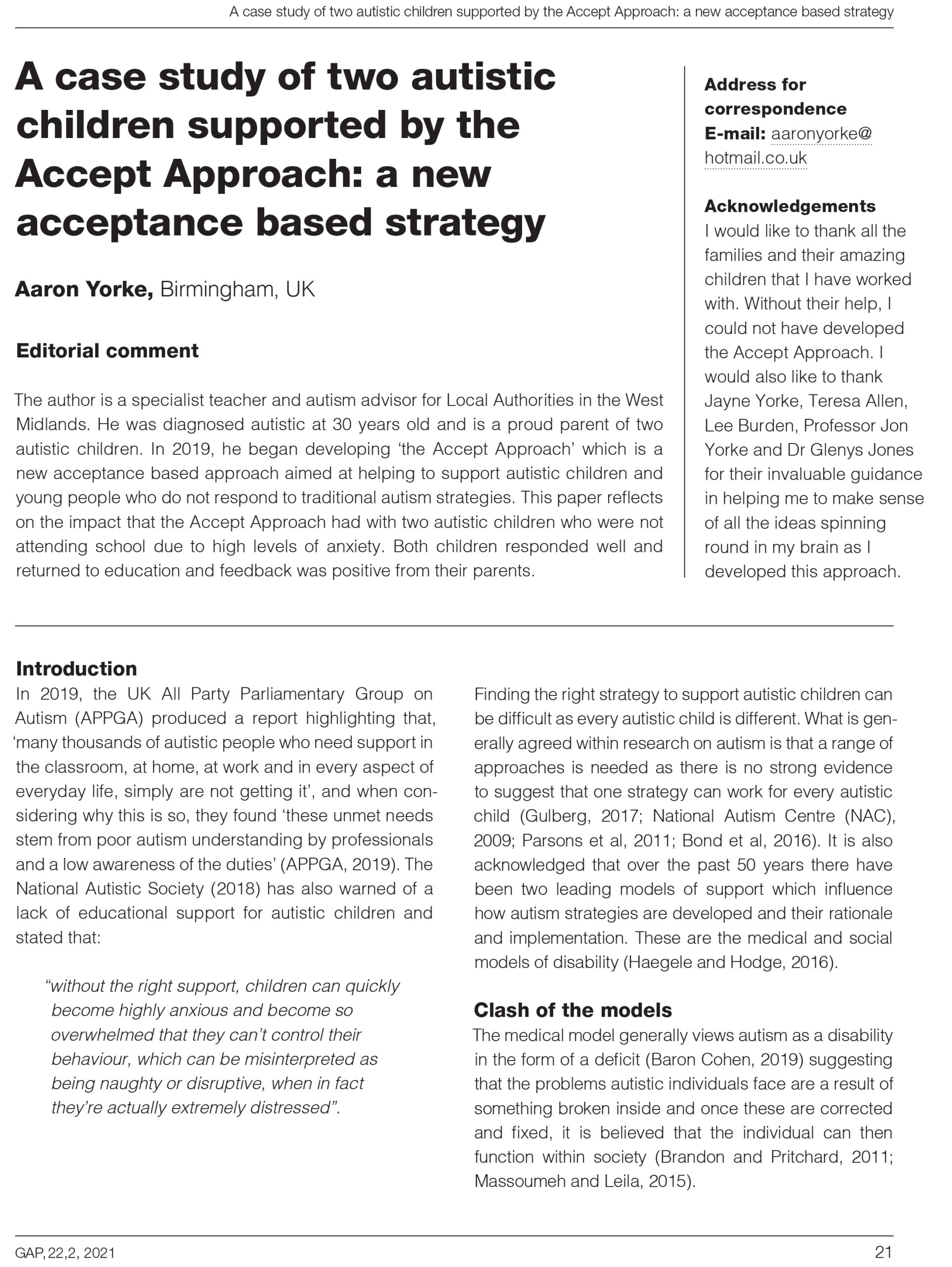SCHOOL AVOIDANCE
Supporting neurodivergent children and young people using acceptance-based strategies.
We believe
in an Acceptance-based approach to school avoidance.
School avoidance in the UK
More than one in six primary school pupils (17.2%) and more than one in four secondary school pupils (28.3%) were estimated to have been persistently absent in the 2022–23 academic year. Persistent absence is defined as missing 10% or more of school sessions. This increase in absence rates has been partly attributed to attitudinal changes following the pandemic
17.2%
Primary age
28.3%
SECONDARY AGE
So, why are so many
children struggling to attend school?
our findings
We work with autistic pupils who have not been able to engage with the National Curriculum. We surveyed 250 families who responded to their thoughts on the National Curriculum. Our findings show that:
We can help you support pupils.
The problem with school attendance
In this video, Aaron discusses the issue of school avoidance. He talks about the problem and how we can support young people who cannot attend school. There are lots of useful tips and resources you can access, so don’t miss this video!
Acceptance Based Curriculum (2023)
We have been developing a way to support students who cannot engage with learning. Here is an article documenting how we use An Acceptance-Based Curriculum to support our students.
Public Sector Equality Duty (PSED)
Certain groups, identified by shared attributes like ethnicity or disability, might face specific challenges or possess unique requirements. The Public Sector Equality Duty (PSED) obligates public bodies, including educational institutions.
Working together to improve school attendance
The DfE has produced a guide for maintained schools, academies, independent schools, and local authorities. You can access this guidance here.







